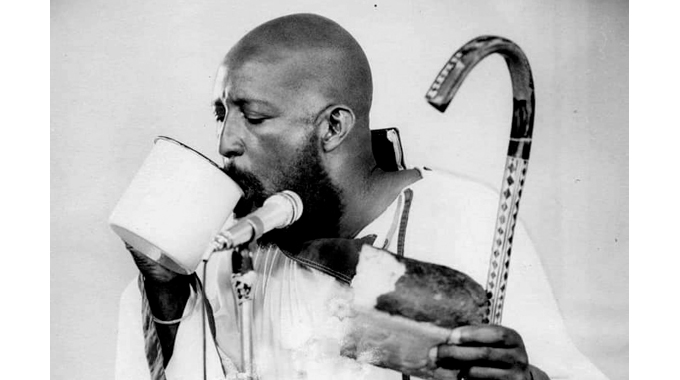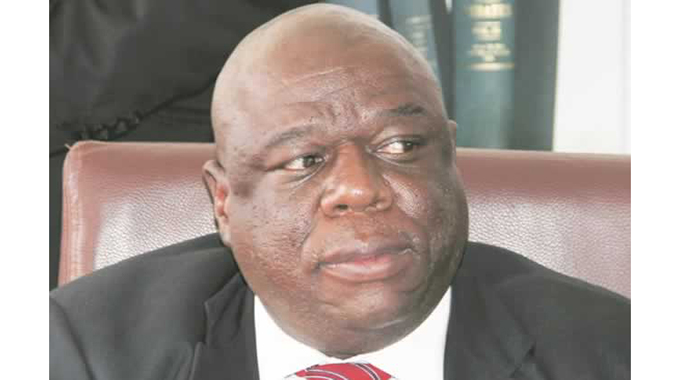Zexie, Zex or Zecks, Manatsa lived to his billing

Isdore Guvamombe Saturday Lounge Reflections
When his story is finally told, there will never be one narrative, for, a single narrative will not justify the hodgepodge of activities he performed from being a musician, to a father, a brother, a grandfather, a friend, a father-in-law and a man of God, among others.
My first encounter with Manatsa was in 1980, when as a spike-haired village boy my father took the whole family from Guruve to Mvurwi for his show.
The hall was jam-packed.
The rather sleepy small farming town of Mvurwi had suddenly roared to life.
We sat on a front bench as a family, flanked by our parents.
Father sat on the left, mother on the right and my sisters Isdollah, Isabel, Innocencia, Illuminator and myself sat munching choice assorted biscuits and drinking Coke from bottles. Opitato, my youngest brother was less than a year old and still suckling. There he sat on the lap, lost on the swarm of sounds – from the guitars to the jeers, cheers and dancing.
At 7pm his band went on stage, played one instrumental until a huge man, thick-lipped, bearded and in spectacular Afro hairstyle, entered the stage much to applause.
Back in the village, in the proverbial land of milk, honey and dust- Guruve- music was everything, you could swim in it, you could drown in it and you could cry over it.
In the village we were used to night vigils, under moonlight and at times in the dark. So this was a first for me.
I had heard his music from our radio. My father had a lot of vinyl records by Manatsa, Thomas Mapfumo and Oliver Mtukudzi.
This night Zexie Manatsa and the Green Arrows were performing at the Council Hall in Mvurwi. For the avoidance of doubt, Mvurwi (Umvukwes in Rhodesia) is a small farming town 100km due north of Harare and a mere 40km from the great land of my autochthones, Guruve.
At the stroke of independence in 1980, on a Monday this villager’s father, a teacher, announced that the following Friday, the family would watch Zexie Manatsa play, live.
The whole family was excited, but not as much as this villager.
My sisters were younger and not much interested in anything that was not Catholic.
The excitement was huge.
Days somehow started moving at a crawl. The sun was not rising and setting fast enough. That week we worked in the fields with stunning allegiance. We did not want to annoy our father in any way.
Back on stage, Zexie started with “Mapostori”, then “Chipo Chiroorwa” and people went into a frenzy.
He went on and on, at times wiping sweat from the forehead but still standing.
My father related to him and they had known each other at farm school called Yomba in Mhangura.
Together with many boys of their generation, they had gone to that farm where they went to school in the morning and worked on the fields in the afternoon, as compensation for school fees.
It was a popular school for many boys from Sipolilo in the 1950s.
My father had left Yomba for teacher’s training in Kutama where he graduated in 1959.
Zexie had remained in Mhangura but out of Yomba Farm where he pursued his music career.
On this particular night, Zexie noticed my father and smiled from the stage. At his show break we were summoned backstage and introduced to him.
They laughed and hugged many times with my father.
They talked about their school days in Yomba. Apparently, Manatsa was a Mhofu, like my father and Manatsa always remarked: “Vahera Varungu” a phrase that rallied many men of our totem with macho-ism.
Manatsa and my father talked affectionately about how they missed each other and about their old shenanigans.
At times they turned into whispers and my mother suspected it was about their childhood girlfriends because later when we were seated she remarked, “you were not talking about small houses”.
My father did not respond, only smiling as the guitars took off in the second leg of the show. The show went on into the wee hours of the night and then my father drove us back home in his Austin Cambridge.
Sometime in 1984, Zexie paid us a visit on his way to see his relatives at Manatsa farm in Nyakapupu, west of Guruve.
Many years later when I had become a journalist, I came across his and re-introduced myself. He was sweet, loving and fatherly. “Vahera varungu Mhofu” he remarked. That became his affable slogan each time I met him.
At some stage he fell on hard times and when I read his story, I called him and I realised he had a very strong character, a very strong mind, after a chit chat he said to me.
“Vahera Varungu Mhofu. I have an inbuilt set of shock absorbers. My life is taking a new direction and the shocks are there.
“Am sorry that its shaking you, but am okay. It is the beginning of a revelation.”
Zexie, Zecks or Zex, whichever name you want to use on him, was a gentle giant, an enigma who was calm and composed but exploded on stage in defiance of his huge frame. He had the voice too, the charisma and the strength to go the distance at every musical show.
He had the voice too, the charisma, the looks, the brains, extra ordinary satirical lyrics and the strength to go the distance at every musical show.
In his later life, Manatsa served God to the fullest, casting a completely new figure from the 1970s musician. May Your Soul Rest in Peace, Mhofu. Till we meet again. Vahera Varungu!









Comments